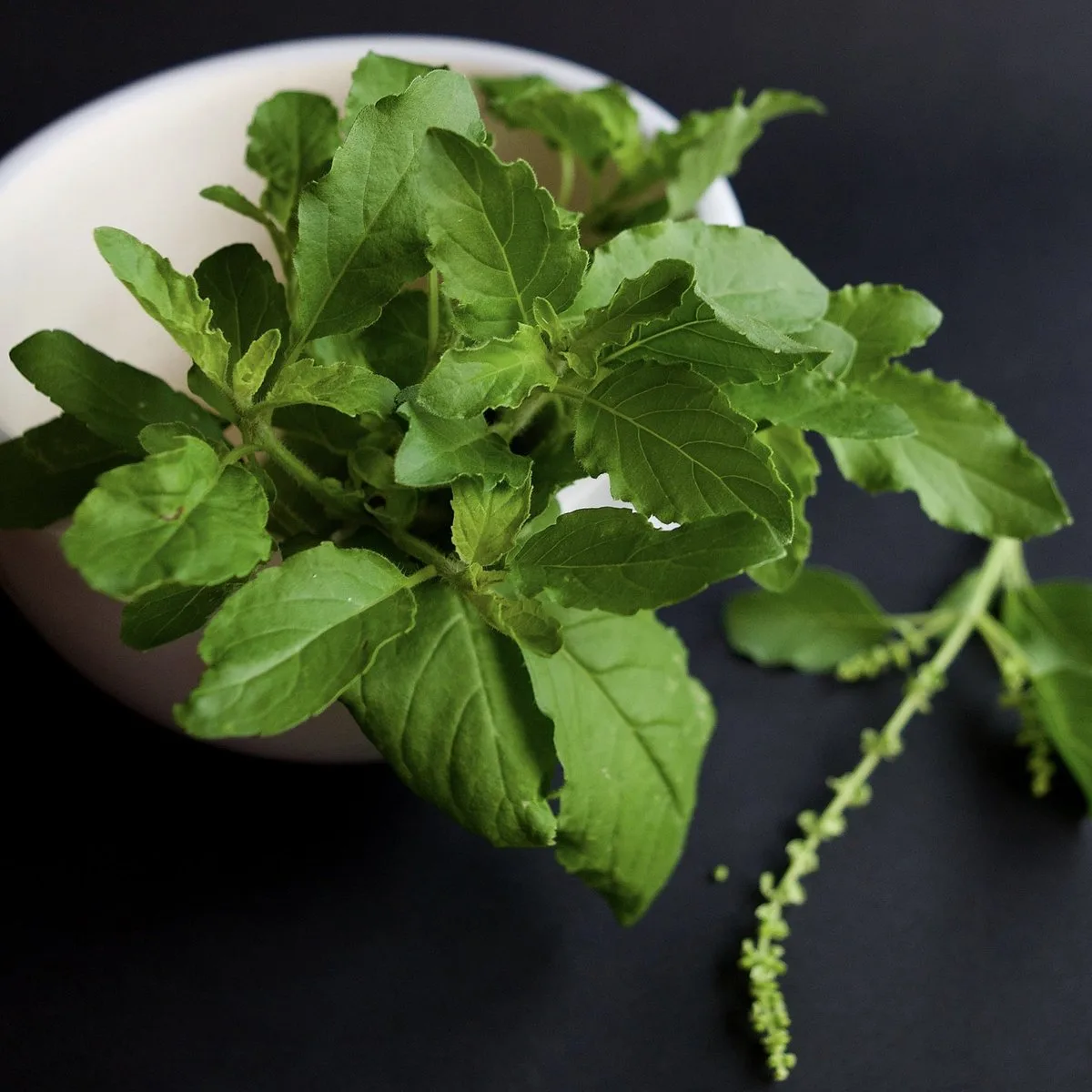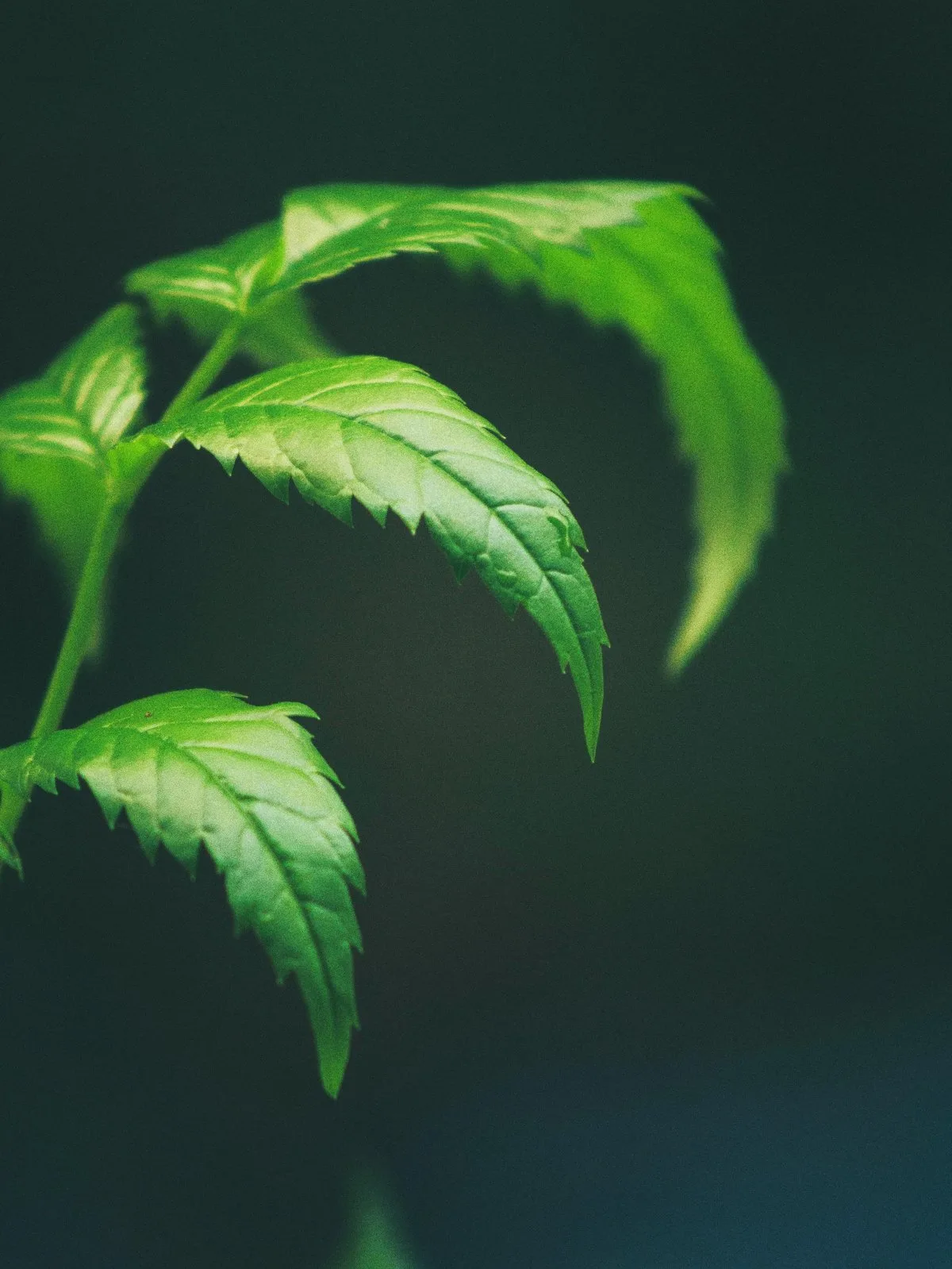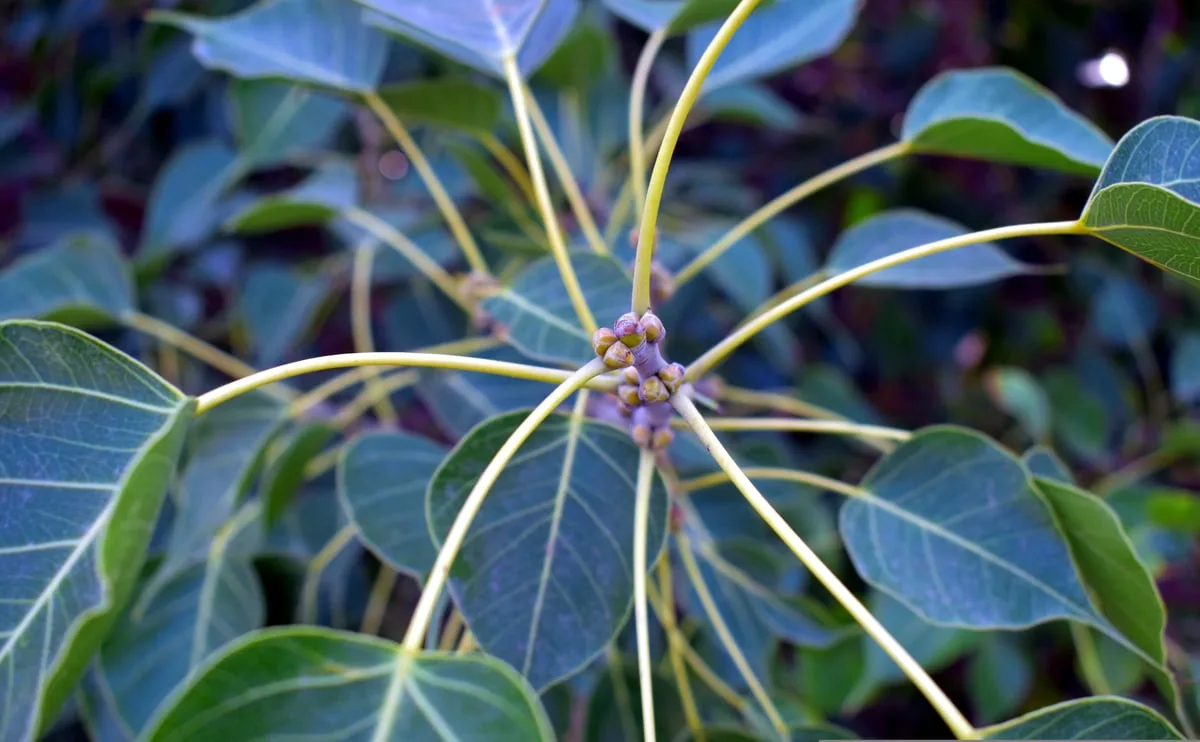India has long been a land deeply intertwined with spirituality, where the lines between nature and divinity blur. From ancient scriptures to modern-day practices, plants have always played an integral role in the spiritual and medicinal traditions of the country. The belief that nature holds the divine is a common thread in Indian spirituality, and many plants are considered sacred because they embody healing energies, protective qualities, and connections to various deities. In this article, we will explore a few of these significant spiritual plants, including Tulsi, Belpatra, and others, and their role in India’s rich spiritual heritage.
Tulsi (Ocimum sanctum)
The Queen of Herbs

Tulsi, or holy basil, holds an unparalleled place in Indian spirituality. Revered as an earthly manifestation of the goddess Lakshmi, the consort of Lord Vishnu, Tulsi is considered a protector of health, a purifier of the environment, and a source of spiritual upliftment. It is often planted in courtyards and worshipped daily in many Hindu households. The plant is not just seen as a botanical specimen but as a sacred guardian, capable of warding off evil spirits and negative energies.
In Ayurveda, Tulsi is known for its numerous medicinal benefits. It is used to treat respiratory conditions, digestive disorders, and is often consumed as a tea to promote general well-being. Its spiritual significance, however, lies in its ability to purify the air and mind, creating an environment conducive to meditation and prayer. Offering Tulsi leaves in religious rituals, especially to Lord Vishnu and Krishna, is a common practice, symbolizing purity and devotion.
Belpatra (Aegle marmelos)
A Gift to Lord Shiva
Belpatra, or the leaves of the Bael tree, holds deep spiritual significance, particularly in the worship of Lord Shiva. The trifoliate leaves, representing the trinity of Brahma, Vishnu, and Mahesh (Shiva), are considered an auspicious offering in temples and during rituals dedicated to Shiva. According to ancient texts, offering Belpatra to Lord Shiva helps in absolving sins and bringing peace of mind.
Inspiration For Home Gardeners In India: Finding Green In Every Corner
The Bael fruit and its leaves are also widely used in traditional Indian medicine, especially in Ayurveda. The fruit is known for its digestive and anti-inflammatory properties, while the leaves are used in various remedies for treating diabetes and other health issues. In a spiritual sense, the Bael tree is said to bring good luck and protect the household from ill health and misfortune. Planting a Bael tree in one's home or temple is believed to invite blessings from Shiva himself.
Neem (Azadirachta indica)
The Tree of Purity

Neem, often called the "village pharmacy," is another plant with profound spiritual and medicinal value in Indian culture. Known for its antimicrobial properties, Neem is revered for its ability to purify not only the body but also the mind and soul. In many parts of India, its leaves are hung at doorways to ward off evil spirits and bad energy. The neem tree is considered a symbol of good health and longevity, as well as a protector against dark forces.
In spiritual practices, neem is often associated with the goddess Durga and other fierce goddesses who represent protection and cleansing. Its leaves are commonly used in pujas, and the tree itself is often planted near temples and sacred spaces to maintain a pure atmosphere. The medicinal use of neem ranges from treating skin conditions to detoxifying the body, making it one of India’s most important spiritual and medicinal plants.
Peepal Tree (Ficus religiosa)
The Tree of Enlightenment

The Peepal tree, also known as the sacred fig, holds special significance in Indian spirituality, particularly in Buddhism and Hinduism. It is under this tree that Siddhartha Gautama (Buddha) attained enlightenment, making it a symbol of spiritual awakening and wisdom. In Hindu tradition, the Peepal tree is considered a manifestation of various deities, including Lord Vishnu and Lord Shiva.
Worshipping the Peepal tree is believed to bring longevity, good fortune, and prosperity. People often perform rituals around the tree, offering water, flowers, and prayers for the well-being of their families. The Peepal tree’s association with the life cycle—birth, growth, death, and rebirth—makes it a powerful symbol of the universe's eternal nature in Indian spiritual thought.
Ashwagandha (Withania somnifera)
The Herb of Strength
Ashwagandha, often referred to as Indian ginseng, is renowned for its rejuvenating and stress-relieving properties. In Indian spiritual traditions, it is considered an important plant that promotes mental clarity, physical vitality, and spiritual strength. It is often used in Ayurvedic treatments to enhance energy levels, balance mood, and promote overall well-being.
On a spiritual level, Ashwagandha is believed to strengthen the mind and body, helping practitioners of yoga and meditation reach deeper states of consciousness. Its grounding energy helps to calm the mind, making it easier to focus during spiritual practices. The herb is also linked to improving one’s aura, the energetic field surrounding the body, and is often taken to protect against negative influences.
Unlock Nature’s Zen: How Bonsai Cultivation Brings Harmony To Your Life
Conclusion
The spiritual plants of India are much more than botanical entities; they are conduits to the divine, carrying within them ancient wisdom and healing energies. From Tulsi’s purifying presence to Belpatra’s connection to Lord Shiva, these plants have been central to the spiritual lives of millions for centuries. Whether used in daily worship, medicinal practices, or meditation, these sacred plants symbolize the intricate relationship between nature, health, and spirituality in Indian culture.
As we continue to evolve in our understanding of the natural world, these plants remind us that the power of the divine is not only found in temples and holy books but also in the very earth beneath our feet.
(Sujal Chawathe is a CA by education but a gardener at heart. Her venture Indoor Greens helps urban offices and homes, add and maintain plants)

